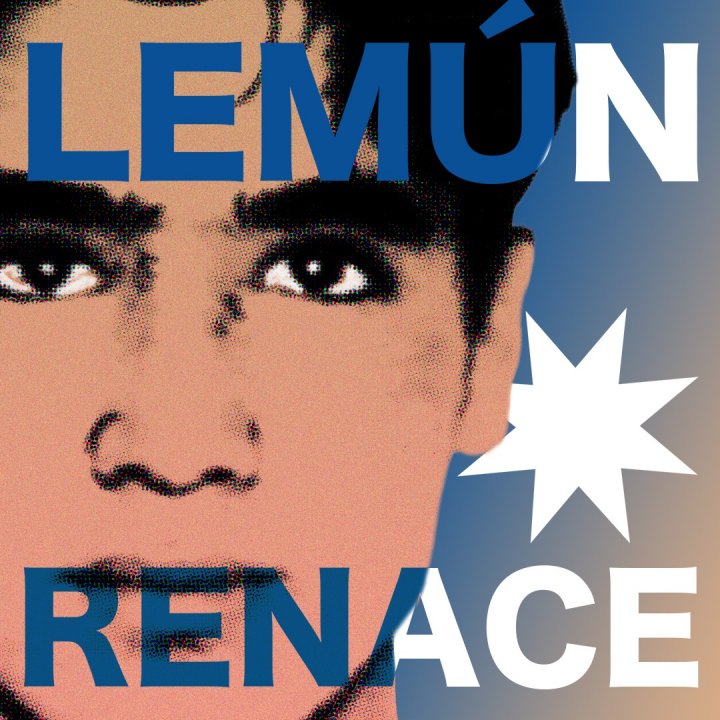11 Mapuche arrested for Luchsinger-Mackey Case

On March 30th, 2016, 11 Mapuche community members were arrested and charged with alleged involvement in the incendiary attack that provoked the death of the Luchsinger Mackay couple in 2013.
The mass arrest was carried out by an enormous police operative of special forces (PDI). More than 100 detectives participated in the arrests, wherein 20 homes were raided in the area of Lumahue in the early mourning hours.
The 11 detained, including Machi [Medicine Healer) Franscisca Linconao, were transferred to police headquarters of Temuco and charged with terrorist arson resulting in death. The undersecretary of the Interior Ministry would announce the charges as being terrorist in nature, and would be the fifth time the Chilean Executive branch under Michelle Bachelet would have implemented terrorist related charges in cases related to Mapuche land claims.
The question of due process, however, is highlighted in the contradictory testimony of Mapuche community member, Jose Peralino, who publicly refuted his earlier testimony against the other accused on their alleged participation in the arson attack of 2013. Peralino alleges that he was subject to intimidation and torture at the hands of Chilean police, and therefore, his testimony held no validity in a court of law.
Family members of the Mapuche community members are demanding the immediate release of the Mapuche Political Prisoners, as well as an end to the application of the Anti-Terrorist Law, and the continued mobilization of Mapuche communities. The only other conviction of a Mapuche community member in relation to the Luchsinger Mackay case was in the case of Machi (Medicine Healer) Celestino Cordova, who was sentenced to 40 years in prison under the charge of terrorist arson resulting in death.
The following is an interview to the spokesperson of the Mapuche Political Prisoners charged under the Luchsinger- Mackay case, Lissette Melillan.
With files from El Mostrador
WCCC [Toronto]
************
Lissette Melillan: “The [Chilean] Government uses the Police to Guard Cows”

The spokesperson of the 10 Mapuche detainees and wife of an ex-member of the CAM.
She states that police guard cows and wheat in the Carillanca estate. “There are so many public resources that are wasted…. If they want to guard their estates, then they should use private guards.”
The special education teacher assured that the conflict is aggravated with the Mapuche community members being placed in pre-trial detention, and have not been given back the land or the water.
By Tania Marquez K.
Lissette Melillan is only 33 years old. Her husband, Luis Tralcal, has been linked with the Arauco Malleco Coordinator of Mapuche Communities in Conflict (CAM), and is one of 10 detainees accused of the incendiary attack that resulted in the death of the Luchsinger-Mackay couple in 2013.
A few weeks ago, she took on the role as spokesperson for the “Mapuche Political Prisoners,” neighbours in her area, who are behind bars in pre-trial prison for the alleged participation in the action that resulted in the death of the couple.
Their objective of struggle is linked in relation to the freedom or release of the Mapuche to house arrest, which has led them to hire their own lawyers, without much success.
Today Melillan speaks of the plight of her people, the arrest of the Mapuche, the arson of the churches and the real necessities of the Mapuche struggle.
TMK: What do you think of the ruling made by the [Chilean] Supreme Court, which confirms the sentence dictated in April by the Temuco Court, rejecting the appeal for protection of human rights presented by the Defense, as well as lifting restrictive bail conditions?
LM: The Defense foretold that the appeal would not work, since it seems that in the Araucanía region, pre-trial prison is the norm, and not house arrest or signing in. There is no comparison with cases in Santiago, where there are complex cases, such as the Soquimch case involving the daughter-in-law of President Bachelet*, that do allow for house arrest, despite being charged with serious crimes. This is why we have been so skeptical unto the courts.
TMK: That is to say that there isn’t a division between the State with its three powers?
LM: Technically the attorneys assure us that pre-trial detention cannot be continued, since the only evidence against the accused are that of witness who contradicted himself, but due to the amount of political pressure on the cases, the judges do not appear to act autonomously.
TMK: Do you believe that this is pressured on by the Government, in order to obtain guilty verdicts in the deaths of the Luchsinger-Mackay couple?
LM: The Luchsinger-Mackay case is the most complex case in the Mapuche conflict and agricultural associations are petitioning for long convictions, so much so that the government has granted special powers to special police forces to carry out their investigations. There are three testimonies which claim that when special police forces (PDI) arrested the accused, they wanted them to sign a declaration, which they refused to do, but were further threatened by the officers. An example can be seen with Mr Vilches (named by the witness as the person who pressured him to denounce the Mapuche), who has had various charges under irregular procedures in Mapuche territory. This is why we are claiming that the government is institutionalizing practices of harassment and torture, in order to obtain results and persecute our leadership.
TMK: During the last few weeks, a Mapuche resistance group dubbed “Weichan Auka Mapu” has appeared in the public spotlight, who have claimed the arson of various churches. What relation do you have with them?
LM: In general, all [Mapuche] movements have this form of more confrontational struggle. For us, it is simply a form of resistance to seek the freedom of Mapuche political prisoners, since we understand that they are a result of the ongoing liberation of the territory. Therefore, politically, it is always precise to demand the freedom or due process of the accused on trial, and our communities have understood it this way. Here, the government did not perceive the injustice being committed, and with those decisions comes an intensification of the conflict.
TMK: So these actions continue being carried out?
LM: The injustice of these detentions have been apparent, since the PDI witness in contradicting his testimony, only contributed to the further rage of the Mapuche communities. There has been no response in the negotiation [with government officials], and the territories that have been reclaimed – of good quality – have been through struggle. The State has never left us another choice than to struggle this way. The State has generated this political violence, and thus we have no choice but to struggle this way. Further, we should remember that the attacks that have occurred in Mapuche territory have happened around communities that are surrounded and occupied by large landed estate owners. It is not something that happens on a whim.
TMK: Yes, but they have burnt down six churches. What do they have to do with the reclamation of land?
LM: We will not question the decisions of the communities acting autonomously. The issue of the churches has come up after [the recent mass] detention. That is to say, an aggravation of the movement has taken place and the [Chilean] state has not been efficient enough to deal with it.
TMK: But why do they burn churches?
LM: Because they have something to say. When we talk of historic debt, we are not just talking about the debt owed to us by the State, but also society as a whole. The Catholic Church, of course, must respond, since they own much of the Mapuche occupied land, and we have not obtained a response. The San Fidel seminary handed over their keys to the reclaiming Mapuche community, and later [the community] was evicted through violence. So how is politics deliberated: through dialog or violence?
TMK: And the Protestant Churches?
LM: They are more predominant in Mapuche communities, and yes, we know that people do go to these churches, and the clergy does not let them participate in Nguillatun (Ceremony), since they claim they would be worshiping two gods. However, these are gods that do not belong to us, wherein a singular God has been imposed on us. We respect those who go to those Protestant churches, but we disagree that they impose their customs of God on us, since we have existed before they came to our territory. They are usurpers that come hand in hand with colonial conquest. When we speak of having a mix of cultures, we are not simply asking for public services in our Mapudungun language, we are talking of a real respect, and that we do not see. Beliefs must be respected and the Church has displaced the beliefs of our Mapuche people.
TMK: But burning churches is attacking the heart of the citizenry and this has been testified by those who go to these churches…
LM: We are not here to say to the communities which practices are correct or not. We shall see how these events develop in time, since these actions can be currently demonized, but later vindicated. Let us remember that the first arson attack was in 1997 and few understood that there was no other way. The Mapuche movement has so many mutations and we only hope that it can be for the better, because believe me, the violence of the State is also tiresome. We will not cry because they come to raid us, because we understand it is part of the struggle and that is why I tell you this is the consequence of our struggle.
TMK: So then what should the [Chilean] State do?
LM: The [large landed] agriculturalists and the Mapuche are on opposite sides, but the State is responsible for not being able to politically deal with the issue at hand. Throwing services at us is not the answer. Repression is not the answer.
TMK: Do you mean to say that the State is responsible for these actions?
LM: It is responsible, because when it represses, it aggravates the conflict, and when it throws services at us, it does not resolve the issue. The issue here is the territory, and when we have it, we will end the conflict. We don’t even need help. We only need land and water. I am on the territory that lies in front of the Luchsinger estate and the police guard cows, and in the Inia Carrillanca estate, the police guard wheat. There are so many public resources being wasted that if they want their estates to be watched over, they should pay for private guards. They should invest that money in buying the land to give back to the communities. They would save so much with all of the attacks on their estates.
Files from Tiempo 21 Araucania
Distributed by: The Women’s Coordinating Committee for a Free Wallmapu [Toronto]
https://wccctoronto.wordpress.com





Leave a comment